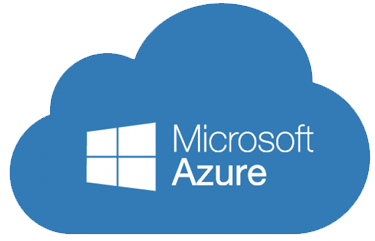Azure Security Pentesting
Microsoft Azure Cloud Security
As businesses increasingly embrace the cloud, Microsoft Azure has emerged as a leading platform for cloud services. While Azure offers robust security features, organizations must remain vigilant in addressing Microsoft Azure security challenges to ensure the protection of their data and applications. In this article, we explore key security challenges associated with Azure and discuss solutions to mitigate these risks.
-
Data Protection and Compliance:
Data privacy and compliance with regulations like GDPR, HIPAA, and industry-specific standards remain top priorities for organizations using Azure. Azure offers numerous tools and features to support data protection, including encryption, access controls, and compliance certifications. However, organizations must actively configure and monitor these features to ensure compliance and data privacy. -
Misconfigurations:
Misconfigured resources are a common source of Azure security challenges. Missteps in setting up virtual machines, storage accounts, or network security groups can lead to data exposure and breaches. Regular Azure security assessments and thorough configurations based on best practices are essential to mitigate misconfiguration risks. -
Identity and Access Management (IAM):
Azure IAM is a critical component of securing resources and data in the cloud. Challenges arise when organizations grant excessive permissions, do not enforce multi-factor authentication (MFA), or fail to regularly review and update user access. Implementing role-based access control (RBAC), strong authentication methods, and regular access reviews are key solutions. -
Insider Threats:
Insider threats, including employees, contractors, and partners, pose a significant challenge for Azure security. It is crucial to implement user activity monitoring and anomaly detection to identify potential threats. Insider threat mitigation also involves creating a strong security culture and providing adequate training. -
Cloud-Native Threats:
Azure introduces new types of threats, such as serverless function vulnerabilities, container security issues, and API exposures. Azure Security Center and Azure Policy can help identify and remediate cloud-native security challenges. Organizations should incorporate cloud-native security practices into their Azure environments to address these threats. -
Distributed Denial of Service (DDoS) Attacks:
DDoS attacks can disrupt Azure services and affect availability. Azure DDoS Protection Standard offers features like traffic inspection and mitigation. Configuring DDoS protection and monitoring traffic patterns is vital for safeguarding against these attacks. -
Secure DevOps and Continuous Integration/Continuous Deployment (CI/CD):
Integrating security into the DevOps pipeline and CI/CD processes is essential. Organizations often struggle with embedding security practices into development and deployment workflows. Implementing tools like Azure DevOps, Azure Security Center, and Azure DevTest Labs can help ensure secure code deployment and continuous security assessment. -
Incident Response Preparedness
An effective incident response plan is crucial for Azure security. Organizations sometimes face challenges in creating, testing, and executing these plans, which can lead to extended downtime or data breaches. Regular incident response drills, incident monitoring, and documentation are vital components of Azure security incident preparedness.
Azure Security Case Study 1: Financial Services Application
Background :
A leading financial services company deployed a critical cloud-based application on Microsoft Azure to manage customer transactions and financial data. The application, hosted on Azure's SaaS platform, aimed to provide secure and efficient financial services to clients.
Incident Overview:
Due to oversight during the initial setup, the Azure environment's security configurations were not appropriately configured. This misconfiguration inadvertently exposed sensitive customer data to the public internet. An attacker identified the misconfigured settings and exploited them to gain unauthorized access to the application's database.
Impact:
- Unauthorized access to customer financial records.
- Financial transactions were at risk of manipulation.
- Reputation damage due to a publicized security incident.
Importance of VAPT:
A thorough Vulnerability Assessment and Penetration Testing (VAPT) could have identified and addressed misconfigurations before the application went live. Regular testing would have ensured ongoing security and compliance, preventing unauthorized access and protecting sensitive financial information.
Azure Security Case Study 2: Healthcare Management System
Background :
A healthcare organization deployed a cloud-based patient management system on Microsoft Azure's SaaS platform. The system stored electronic health records, facilitating seamless communication among healthcare providers and ensuring timely patient care.
Incident Overview:
Misconfigurations in the Azure environment's security settings led to unintended exposure of patient data. An attacker exploited these misconfigurations to gain unauthorized access, potentially compromising patient confidentiality and the integrity of health records.
Impact:
- Unauthorized access to sensitive patient health records.
- Compromised patient confidentiality.
- Regulatory penalties due to non-compliance.
Importance of VAPT:
A robust VAPT process, including regular assessments of the Azure environment, could have identified and rectified misconfigurations. This proactive approach to security would have safeguarded patient data, ensured compliance with healthcare regulations, and preserved the organization's reputation.
In both case studies, the incidents highlight the critical importance of conducting thorough vulnerability assessments and penetration tests in Azure environments hosting sensitive applications. Regular testing helps identify and rectify misconfigurations, ensuring a robust security posture and safeguarding against potential cyber threats.
.
Valency Networks: Leading Azure Cloud Security Consultancy
Valency Networks stands out as a premier Azure Cloud Security consultancy, providing comprehensive solutions to safeguard businesses in the dynamic digital landscape. Specializing in Azure, Valency Networks excels in delivering expert guidance and implementation strategies to enhance the security posture of organizations leveraging Microsoft's cloud services.

Key Aspects of Valency Networks' Azure Cloud Security Consultancy
-
Vulnerability Assessment and Penetration Testing (VAPT):
Valency Networks emphasizes the importance of regular VAPT to identify and address potential weaknesses in Azure deployments. This proactive approach minimizes the risk of security incidents. -
Compliance and Governance:
Recognizing the significance of regulatory compliance, Valency Networks assists clients in aligning their Azure environments with industry-specific regulations and standards. This includes continuous monitoring and audits to ensure ongoing compliance. -
Incident Response Planning:
Valency Networks develops robust incident response plans tailored to Azure environments. By preparing clients for potential security incidents, they mitigate the impact and facilitate swift recovery, minimizing downtime and data loss.
Why Valency Networks is a Top Azure Cloud Security Company?
-
Expertise:
Valency Networks boasts a team of seasoned cybersecurity professionals with in-depth knowledge of Azure's intricacies. Their expertise positions them as a trusted authority in Azure Cloud Security consultancy. -
Proactive Security Measures:
Valency Networks is distinguished by its proactive approach to security. By staying ahead of emerging threats and continuously refining security measures, they ensure that clients' Azure environments remain resilient in the face of evolving cyber risks. -
Client-Centric Solutions:
Valency Networks understands that each organization has unique security requirements. Their client-centric approach involves tailoring solutions to specific needs, fostering long-term partnerships based on trust and results. -
Innovation and Adaptability:
As the cybersecurity landscape evolves, Valency Networks remains at the forefront of innovation. They continually update their methodologies and solutions to address emerging threats, offering clients cutting-edge security measures.
In conclusion, Valency Networks' Azure Cloud Security Consultancy sets the standard for excellence in the field. Through a combination of expertise, tailored solutions, and a commitment to proactive security practices, they have earned their reputation as a top Azure Cloud Security company, dedicated to securing organizations in the digital age.
Microsoft Azure is a powerful cloud platform, and it offers numerous security features to protect data and resources. However, addressing Microsoft Azure security challenges requires a proactive approach from organizations. By understanding the potential threats and vulnerabilities, configuring Azure resources securely, and implementing best practices, organizations can harness the benefits of Azure while safeguarding their data and applications. Azure provides a secure cloud platform, but it is up to users to make the most of it.


